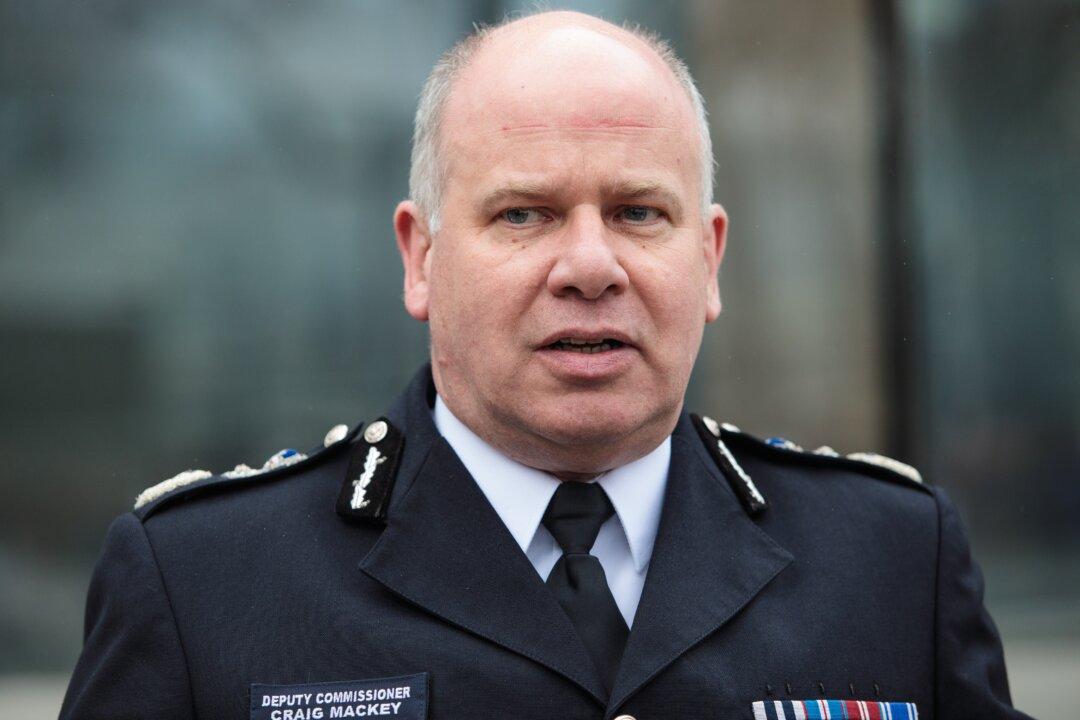LONDON—When he spotted a knife-wielding figure breach the security barrier at London’s Houses of Parliament, Sir Craig Mackey had no gun, no stab vest, taser, or radio. But the decision by the nation’s most senior policeman to then lock himself in his car during last year’s Westminster terror attack is now under scrutiny, with some fellow officers calling for him to resign and to be stripped of his knighthood.
Details emerged on Oct. 8 of how Mackey happened to be leaving a meeting with government ministers at the exact moment Khalid Masood crashed his SUV into nearby railings, ran around the corner, and burst through security gates, after mowing down pedestrians on Westminster Bridge.





